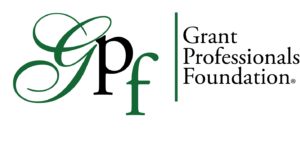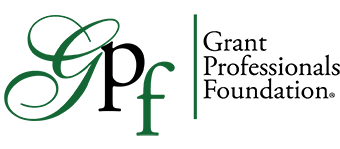GPA 2020 Annual Conference Scholarship Essay, by Jennifer Deering
Arkansas Chapter Conference Scholarship
In late February 2020, I went into my bank to discuss opening a business account for my freshly minted consulting firm of one employee (me). When I was called into the customer-service representative’s office, I remember we almost shook hands. We joked about the novel coronavirus and how that exchange of germs might not be such a good idea.
The rep explained he needed a copy of my letter of determination and the operating agreement. As a former grant writer, I knew exactly what he was talking about and promised to bring those documents in the next day, wanting to head out to the Arkansas river for a hike on an unusually warm and bright winter afternoon. The next morning, I saw a message from the bank in my e-mail, not something that happens very often. I immediately opened it and read that, due to concerns around COVID-19, the lobby would be closed for all business until further notice. I guess the rep and I were almost literally whistling past the graveyard when we greeted each other jokingly.
I’ve been working on grants from application to closeout since 2009 when I was the assistant director of the University of Central Arkansas’s (UCA) Writing Center. Most of these were small grants to support guest speakers from other, more famous, writing centers around the country. In 2012, I was recruited by the director of UCA’s Sponsored Programs to become the grant writer for the university. I loved the work as much as I loved teaching because I could see my position gave me the opportunity to change the world, to make it a better place for others whether through an NIH grant I was editing or an NEA grant I was writing as a co-PI. After I sold a house in another state, I had quite a bit of savings built up, and I realized that this might be a chance to go it alone, an opportunity that would allow me to work toward funding of projects I was really invested in. Having taught a graduate-level grant writing class in a community and economic development program, I was interested in working with nonprofits and municipalities to improve the quality of life for underserved populations. When I saw the chance to work for myself, I took it!
My operating agreement is quite clear: any income I receive as a grants consultant must first go into a business account. I can then pay myself out of the account. So now what was I to do? I had money saved from the sale of the house, so I knew I could get by for a little while, but not forever. My GPA membership was coming due, and I knew I wanted to attend the annual conference. As reasonable as these costs are, I didn’t see how I would be able to make money to offset them. So I applied for the scholarships available through the Grant Professionals Foundation. Fortunately, I won both the membership and the conference scholarships, which tided me over until my bank pivoted to a new reality where I managed to open my business account from the comfort of my own vehicle. With that, I was able to start doing business.
I wasn’t too concerned with the shift from in-person to online sessions, for the grant writing classes I taught in two different graduate-level programs for five years were completely virtual. I adjusted easily to the new format. In fact, since I’m not able to be in two places at once, I was relieved not to have to choose one session over another: I could go back and listen to the recordings of those sessions I missed and have been since November.
I mentioned in my applications that if I won the scholarships, I could promise a high return on investment for the Grant Professionals Association, the Arkansas Chapter, and the communities I serve. By attending the conference, I can honestly say I have returned the favor of the scholarship many times over. For one, I am the vice president of the Arkansas Chapter of GPA. As a member of our Communications and Membership Committee, I have managed to pull together a communications plan, schedule, and set of procedures for all the channels of communication we have at our disposal, reviving dormant Facebook and Twitter accounts.
I could go into detail about the various tips and tricks, references to OMB guidance I was unaware of, or the growth mindsets I established through different kinds of sessions. But I think the main takeaway for me is the re-affirmation that I am a professional: I know what I’m doing, I’m successful at my vocation, and my instincts will guide me in the right direction. I could also provide several examples of how this has played out since the end of the conference. I’ll leave you with one.
I had my first consultation with a potential client in the nonprofit world a few weeks ago. I have a list of questions I send in advance to keep the initial discussion on track and ensure both parties have the information they need. As the conversation unfolded, I began to feel something wasn’t quite right. The client had worked with a previous grant professional (not a member of GPA) who had, he was confident, ensured he was grant-ready. Except he kept mentioning “articles of incorporation.” I was honest with him: “I’m not quite sure what you mean by that term.” Because I had attended several sessions devoted to working with nonprofits and starting one’s own consulting agency, I knew the minute I saw the letter of determination that someone had made a mistake. As far as the IRS was concerned, his nonprofit was an S-corporation. I dug a little deeper to discover that it was listed with the Arkansas Secretary of State’s office as a domestic nonprofit corporation…not a 501(c)(3). I shared the bad news and suggested he work with a tax attorney to dissolve both the S-corporation and the domestic nonprofit corporation and start afresh pursuing the 501(c)(3) status that would ensure his organization can apply for federal, state, foundation, and corporate grants.
My instincts are based on other people’s experiences. When someone at a conference shares a story, whether the outcome was positive or negative, I remember. I could read about tax code and nonprofit status for years; I would still find it difficult to apply in the real world. But when someone tells a story about how they almost submitted a grant for a nonprofit that was not in good standing with the IRS, I remember to check Guidestar before proceeding. Such was the case with this potential client.
When I first started thinking about opening my own consulting firm, I had hoped to work with institutions of higher education and municipalities since that’s where my experience is. What I’ve found is that I need to build up a reputation (another benefit of attending the annual conference) and subcontract until Grantfully Yours has name recognition. I also discovered there are a lot of struggling nonprofits in need of my expertise. As I work with each one, I notice they hang too much hope on grants to help with operating expenses. Several sessions I attended at the 2020 annual conference were focused on fundraising and development. Operating expenses aren’t usually eligible for grant funding. Because of what I learned at the conference, I’m able to advise these nonprofits on fund and friend raising and developing donations to pay for budget items ineligible for grant funding.
I am very thankful to the Grant Professionals Foundation for providing support for me to attend the conference. It boosted my self-esteem and helped me connect with others in the profession both during networking lunches and on LinkedIn. As a gesture of my thanks, I volunteered to moderate a session at the conference and hope to join the Grant Professionals Foundation board to help carry out the work you do to lift others. I am grateful to have attended the conference and to the individuals and organizations who donate for the cause.
More information about Conference Scholarships, including application dates and eligibility criteria, is available here.

